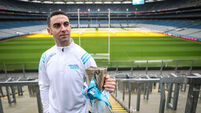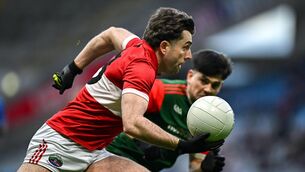The Mayo mantra: Bring it on
Ó Sé’s side had just beaten Mayo in the 1995 All-Ireland U21 final replay and Carney was upset with comments made by the Kerryman after the drawn game.
“I think Paídí said something like, ‘we like playing Mayo because they play nice football’,” remembers Kerry’s 2004 All-Ireland-winning captain Dara Ó Cinnéide.














